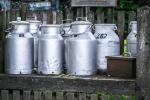LIFE Project: Development of sustainable control strategies for citrus fruits threatened by climate change and prevention of HLB entry into the EU
- Type Project
- Status Filled
- Execution 2019 -2023
- Assigned Budget 3.349.384,00 €
- Scope Europeo
- Autonomous community Andalucía
- Main source of financing LIFE
- Project website Web del proyecto
Life Vida for Citrus was born with the purpose of protecting the citrus sector by developing plants resistant to the disease, and with the idea of implementing environmentally friendly cultural practices that limit the development of the vector that transmits the disease and that contribute to reducing the carbon footprint and climate change.
The EU Mediterranean region accounts for approximately 20% of global citrus production and 70% of global citrus exports. Citrus fruits are vulnerable to a disease called Huanlongbing (HLB), or citrus greening disease. This is caused by a bacterium, Candidatus Liberibacter spp.
Although it has not yet reached Europe, the disease infected 40 countries between 2005 and 2009, causing up to 60% of deaths. This pandemic is spread through insect vectors, one of which, Trioza erytreae, was found in northwestern Spain in 2014 and has since spread to Portugal.
There is no known cure for HLB, and current control measures have a significant negative environmental impact, requiring high doses of chemical insecticides and tree eradication. Compounding the problem is the difficulty of early detection, as visible symptoms appear too late. Climate change, among other challenges, exacerbates the spread of diseases, including HLB.
- Contribute to the early diagnosis of HLB by developing a marketable early detection kit.
- Testing new pathogen- and heat-tolerant rootstocks that can adapt to Mediterranean citrus production and increase plant resilience.
- Demonstrate techniques to effectively control vector spread and enhance ecosystem-wide defenses through sustainable agricultural practices, while providing other environmental co-benefits.
- Promote international cooperation and involve the EU's outermost regions in strategies to prevent the entry of HLB and contain its potential spread.
- To create a replicable model of agricultural practices for vector and disease prevention for citrus growers in the EU, while increasing their capacity to adapt to climate change.
- Demonstrate how to reduce chemical use in accordance with EU Directive 2009/128/EC on the sustainable use of pesticides.
- Select and test at least three or four new citrus rootstocks that have potential tolerance to HLB and the most extreme weather patterns in the Mediterranean region, in different trials for oranges, lemons, and mandarins.
- Demonstrate sustainable practices on 45 hectares in nine productive citrus orchards in Spain, Italy, France, and Portugal, and at least 1,000 trees in an urban setting (Seville).
- Contribute to a reduction in greenhouse gas emissions of approximately 1,000 tons of CO2 after three years by reducing crop protection applications and increasing carbon capture.
- Develop a best practices manual that includes a proposal for HLB prevention and management and natural vector control measures for both citrus production and citrus trees in urban green spaces.
- Develop an HLB early detection kit and supporting manual, and test it in Portugal and Spain, where the vectors are present, and in Guadeloupe, where the infection is already present.
- Raise awareness among approximately 450,000 people in the EU, including farmers and citizens, nurseries, extension and plant protection services, urban gardening departments, and the citrus sector (including companies marketing ornamental citrus).
- Create a market-based replication effort in at least 20 areas, including cities and plantations, in the four countries involved.
- Increase local biodiversity by at least 10% by introducing supporting flora and fauna into citrus orchards, in line with the EU Biodiversity Strategy for 2020.
- Coordinator/entity name: Benjamn Fauli
Postal address: C/ Mauricio Moro, 4-3 Eurocom-Centro Building, 29006, Málaga,
- Asociación Agraria Jóvenes Agricultores Málaga
- CIRAD(CENTRE DE COOPERATION INTERNATIONAL EN RECHERCHE AGRONOMIQUE POUR LE DEVELOPPEMENT)
- INRA(INSTITUT NATIONAL DE LA RECHERCHE AGRONOMIQUE FRENCH NATIONAL INSTITUTE FOR AGRICULTURAL RESEARCH)
- UNICT(Università degli Studi di Catania)
- UALG(Universidade do Algarve)
- VAL-AGRO(VALENCIAGRO – PRODUCIÓ FRUTíCOLA, UNIPESSOAL LDA)
- AVA-ASAJA(Asociación Valenciana de Agricultores - Asociación Agraria Jóvenes Agricultores)
- IFAPA(INSTITUTO ANDALUZ DE INVESTIGACIóN Y FORMACIóN AGRARIA PESQUERA ALIMENTARIA Y DE LA PRODUCCIóN ECOLóGICA)
- ASAJA(Asociación Agraria Jóvenes Agricultores)
- Ay Sevilla(Ayuntamiento de Sevilla)
- IVIA(Institut Valencià d'Investigacions Agràries)
- ICIA(INSTITUTO CANARIO DE INVESTIGACIONES AGRARIAS)
- AGRIMARBA(Agrimarba 2 S.L.)
- Project website (LIFE)
- X
- Project Video Channel
- Video: Life Vida For Citrus: Environmental and Climate Change Mitigation Strate…
- Video: Progress and Achievements: Final Conference of the Life Vida for Citrus …
- Final report
- Explanatory brochure
- Replication cards
- Comic Huanglongbing the citrus disease
- News







